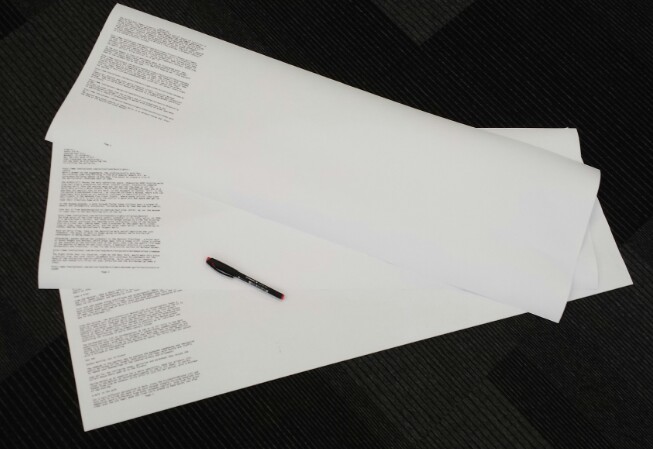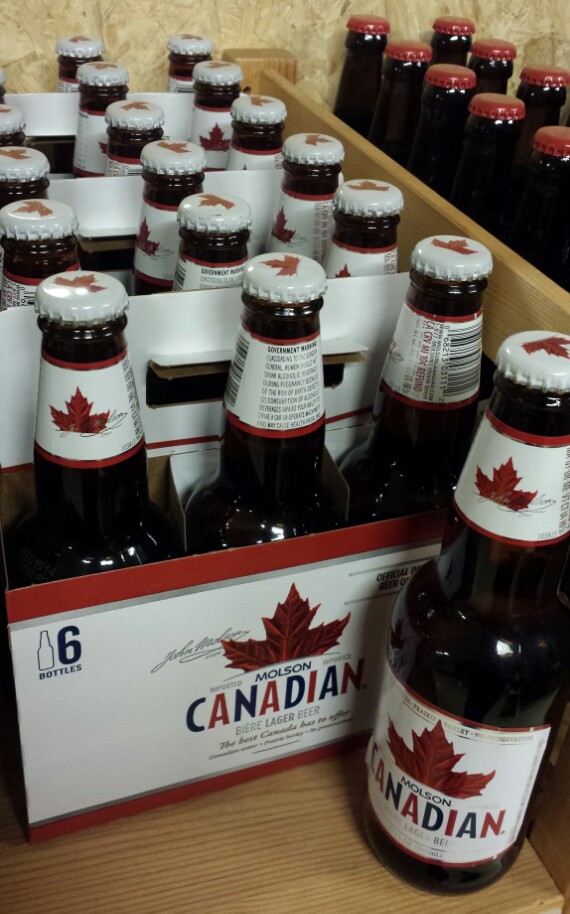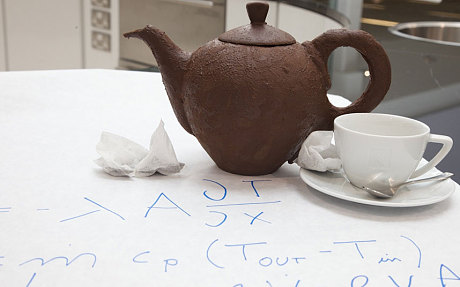Month: September 2014
Think before you print
Canadians, we’re everywhere
Reason #37457426845 why I won’t travel to the US if I can avoid it
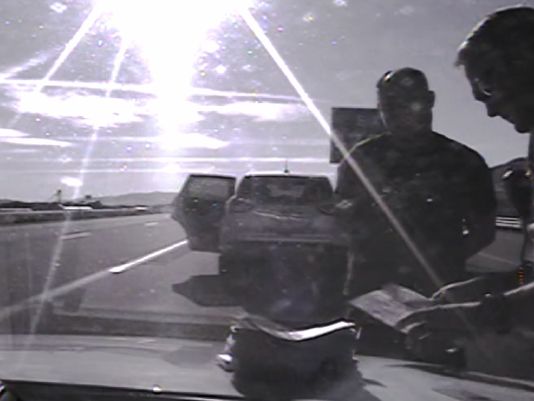
This is… I have no words for this. I can’t say that I’m surprised. No, that’s not true. I’m surprised by the scope of the corruption. I’m surprised that people aren’t protesting in the streets over this. Oh, that’s right. Mass protest is illegal. The terrorists have won. Go on your safe way, citizen.
American shakedown: Police won’t charge you, but they’ll grab your money
U.S. police are operating a co-ordinated scheme to seize as much of the public’s cash as they canOn its official website, the Canadian government informs its citizens that “there is no limit to the amount of money that you may legally take into or out of the United States.” Nonetheless, it adds, banking in the U.S. can be difficult for non-residents, so Canadians shouldn’t carry large amounts of cash.
That last bit is excellent advice, but for an entirely different reason than the one Ottawa cites. There’s a shakedown going on in the U.S., and the perps are in uniform. Across America, law enforcement officers — from federal agents to state troopers right down to sheriffs in one-street backwaters — are operating a vast, co-ordinated scheme to grab as much of the public’s cash as they can; “hand over fist,” to use the words of one police trainer.
It usually starts on the road somewhere. An officer pulls you over for some minor infraction — changing lanes without proper signalling, following the car ahead too closely, straddling lanes. The offence is irrelevant.
Then the police officer wants to chat, asking questions about where you’re going, or where you came from, and why. He’ll peer into your car, then perhaps ask permission to search it, citing the need for vigilance against terrorist weaponry or drugs. What he’s really looking for, though, is money.
And if you were foolish (or intimidated) enough to have consented to the search, and you’re carrying any significant amount of cash, you are now likely to lose it. The officer will probably produce a waiver, saying that if you just sign over the money then the whole matter will just disappear, and you’ll be able to go on your way. Refuse to sign it, and he may take the cash anyway, proclaiming it the probable proceeds of drugs or some other crime. Either way, you almost certainly won’t be charged with anything; the objective is to take your money, not burden the system.
You’ll have the right to seek its return in court, but of course that will mean big lawyer’s fees, and legally documenting exactly where the money came from. You will need to prove you are not a drug dealer or a terrorist. It might take a year or two. And several trips back to the jurisdiction where you were pulled over. Sorry. In places like Tijuana, police don’t make any pretense about this sort of thing. Here in the U.S., though, it’s dressed up in terms like “interdiction and forfeiture,” or “the equitable sharing program.” Authorities claim it’s legal, but some prosecutors and judges have called it what it is: abuse. In any case, it’s a nasty American reality.
Seizing suspected drug money has been legal here for decades, but after 9/11 police acquired a whole new set of powers and justifications. And they set about using them for profit.
The Washington Post this week reported that in the past 13 years, there have been 61,998 cash seizures on roadways and elsewhere without use of search warrants. The total haul: $2.5 billion, divided pretty much equally between the U.S. government and state and local authorities (hence the Kafkaesque “equitable sharing” euphemism).
Half of the seizures, according to the Post, were below $8,800. Only a sixth of those who had money taken from them pursued its return. Some, no doubt, were indeed drug dealers or money launderers and just walked away from the money. Others just couldn’t spare the expense and time of going to court. Of those who did, though, nearly half got their money back, a statistic that fairly screams about the legitimacy of the seizures.
So does another fact: In many cases, authorities offer half the money back – money they’d claimed was proceeds of crime. And when they do issue a cheque, they almost always insist their victim sign a legal release promising never to sue. It would also appear police like to target minorities, who tend to be cooperative and less likely to hire a lawyer.
Civil rights advocates have documented all sorts of outright legal theft:
– The (minority) businessman from Georgia who was relieved of $75,000 he’d raised from relatives to buy a restaurant in Louisiana.
– The (minority) church leaders who were carrying nearly $30,000 from their Baltimore parishioners to carry out church activities in North Carolina and El Salvador.
– The young college grad with no criminal record on his way to a job interview out West who was relieved of $2,500 lent to him by his dad for the trip.News outlets here have reported many such abuses over the years. But the Washington Post’s latest investigation exposes money-grabbing as big business. It involves a nationwide network of enforcement agencies (except in the few states that have banned it) that operates with the help of a vast private intelligence service called “Black Asphalt” (police forces pay an enrolment fee of $19.95). The network uses consultants and trainers who either charge fees or operate on contingency, keeping a percentage of cash seized by their police pupils.
Police forces use the money to finance their departmental budgets, sometimes spending it on luxury vehicles, first-class tickets to conferences, and lavish quarters. They regard the money as rightfully theirs. One prosecutor used seized cash to defend herself against a lawsuit brought by people whose cash she seized.
It’s just human nature, really.
Give police the legal ability to take someone’s money, and to claim it’s in the national interest, and then tell them they can keep a nice chunk of it, and what other result could there be?
So, for any law-abiding Canadian thinking about an American road trip, here’s some non-official advice:
- Avoid long chats if you’re pulled over. Answer questions politely and concisely, then persistently ask if you are free to go.
- Don’t leave litter on the vehicle floor, especially energy drink cans.
- Don’t use air or breath fresheners; they could be interpreted as an attempt to mask the smell of drugs.
- Don’t be too talkative. Don’t be too quiet. Try not to wear expensive designer clothes. Don’t have tinted windows.
- And for heaven’s sake, don’t consent to a search if you are carrying a big roll of legitimate cash.
As the Canadian government notes, there is no law against carrying it here or any legal limit on how much you can carry. But if you’re on an American roadway with a full wallet, in the eyes of thousands of cash-hungry cops you’re a rolling ATM.
Microsoft Paid The NFL $400 Million To Use Its Tablets, But Announcers Are Calling Them iPads
Prior to the season, Microsoft and the NFL struck a 5-year, $400 million deal with one of the major components being that the Microsoft Surface would become “the official tablet of the NFL” with coaches and players using the Surface on the sidelines during games.
But Microsoft and the league ran into a problem during week one of the season when at least two television announcers mistakenly referred to the tablets as iPads giving a huge rival some unexpected exposure.
One announcer did seem to realize his mistake when he later noted that players now have “iPad-like tools” at their disposal. However, at no time during the discussion was Microsoft or the Surface mentioned by name.
As for future games, the NFL and Microsoft will likely work to inform — or more likely remind — the networks that those blue tablets are in fact not iPads.
Swiss magazine shop, u mad!
Hidradenitis suppurativa is an evil, evil disease

Hidradenitis suppurativa (HS) is a chronic skin disease characterized by clusters of abscesses and cysts that most commonly affects apocrine sweat gland bearing areas, such as the underarms, under the breasts, inner thighs, groin and buttocks. The disease is not contagious. HS cysts can be extremely tender and may persist for years with interspersed periods of inflammation, culminating in incision and drainage of pus from the cyst. This process often forms open wounds that will not heal and frequently leads to significant scarring. Incision and drainage procedures may provide symptomatic relief. HS flares may be triggered by sweating, hormonal changes related to the menstrual cycle), humidity and heat, and friction from clothing.
Persistent lesions may lead to the formation of sinus tracts, or tunnels connecting the abscesses or infections under the skin. At this stage, complete healing is usually not possible, and progression is variable, with some experiencing remission for months to years at a time, while others may worsen and require multiple surgeries. Bacterial infections and cellulitis (deep tissue inflammation) are other common complications of HS. Depression and physical pain are often seen with HS and can be difficult to manage.
HS often goes undiagnosed for years due to a delay in seeking treatment and is frequently misdiagnosed. There is currently no known cure nor any consistently effective treatment. HS is an orphan disease due to sparse research efforts. Sufferers may gain insight into how best to control their flare-ups by following blogs written by fellow sufferers.
Cat shift change
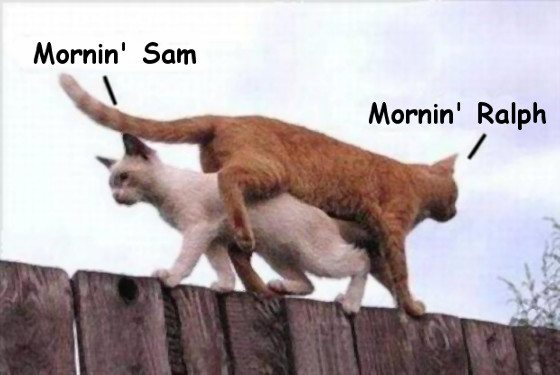
Movies that change completely when you add an extra letter
‘Sup
Americal History XL
Backs to the Future
Bi,Robot
Citizen Kanye
Diet Hard
Dude, Where’s my Czar
Ex-Men
Finding Nemoy
Harry Pottery
I love you, Mane
Irony Man
Krill Bill
Look Who’s Stalking
Mrs. & Mrs. Smith
Nightmare on Elmo Street
Shaving Private Ryan
Sitar Wars
The 400-Year Old Virgin
The Da Vinci Chode
The Dark Knight Rinses
The Green Smile
The Hoarse Whisperer
The Humane Centipede
The Men Who Stare at Goatse
The Scat in the Hat
The Thingy
World War Oz
Nestlé made a functional chocolate teapot
A chocolate teapot is not as useless as the old saying suggests as scientists have shown it is possible to use one to brew tea – provided you do not stir it.
Master chocolatier John Costello and his team from the Nestle Product Technology Centre (PTC), in York, were given the challenge of turning the familiar idiom on its head.
Mr Costello enlisted some of the PTC’s top scientists and engineers to help in its development and solved the problem after a range of experiments.
He said they found that the secret was to use dark chocolate with 65% chocolate solids, due to its fat content, and build up a series of layers using a silicon mould. Doing so, they could create a teapot that was able to withstand boiling water to let the tea brew for two minutes before pouring.
“Interestingly, if you pour the water in a certain way and you don’t stir inside, and you just let it settle, and let it brew like you would normally brew a cup of tea, and just let it stand for a little while – when you pour it, what happens is that the chocolate on the inside of the shell melts but doesn’t move anywhere.
“It stays where it is. So you get a very, very small amount of residue coming up to the top.”
Tasting the final brew, the team concluded it was a lovely cup of tea with a slight hint of chocolate.
The PTC in York is Nestle’s global centre for confectionery research and development and has 185 staff.


